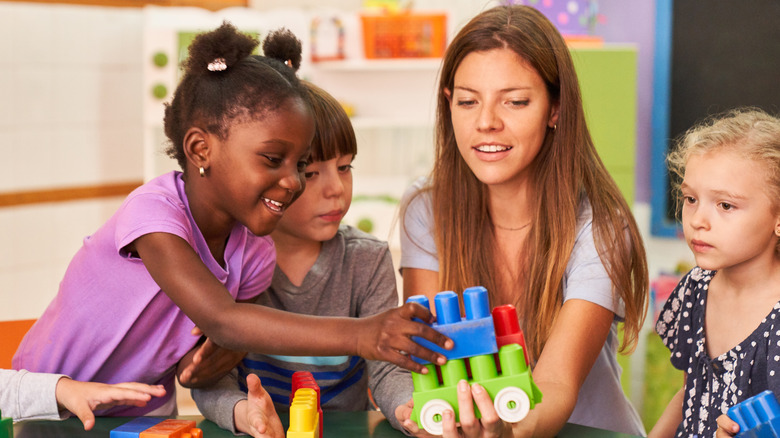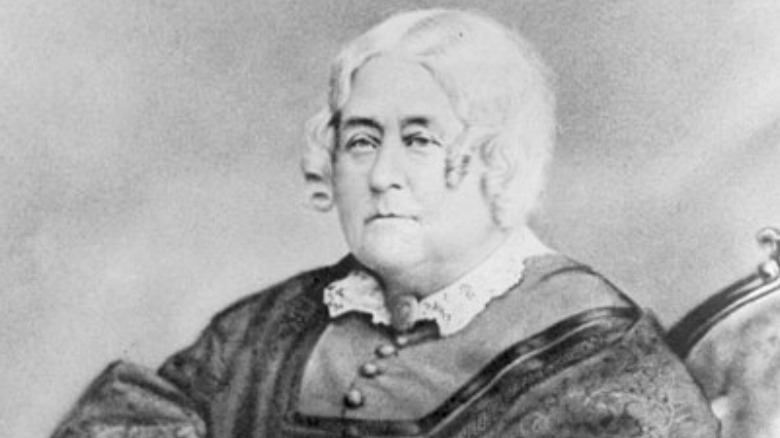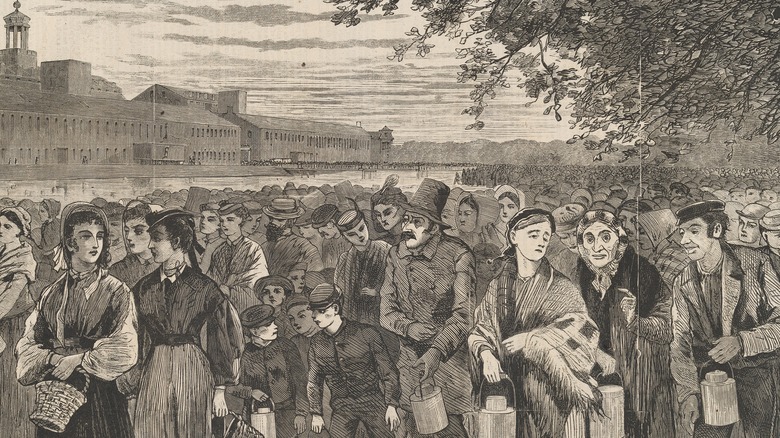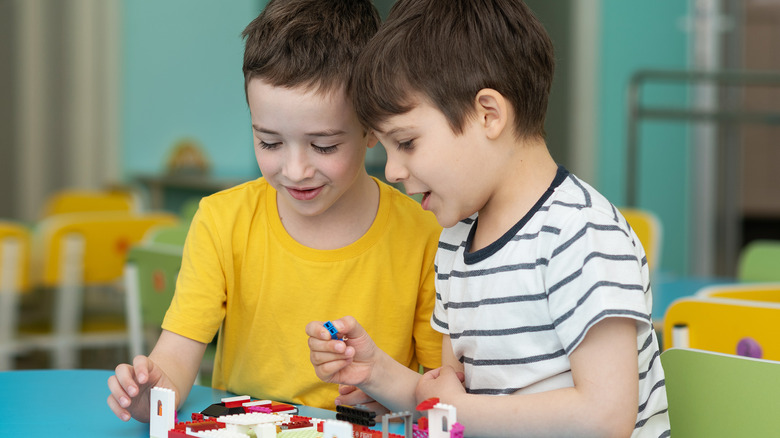American Kindergarten Is Older Than You Think
It may surprise you that kindergarten is not compulsory in all 50 states. As of 2022, California still does not require children to enroll in school until they are 6 years of age (via EdSource). In 2021, Louisiana Governor John Bel Edwards made it mandatory that children attend school from age 5 through 18, changing the previous law that required students to attend from age 7 through 18 (via AP News).
Studies have shown that kindergarten is a crucial time for children to develop learning skills that not only help them, but help their teachers in the future. Kindergarten is no longer the "Romper Room" scenario popularized in the 20th century, but rather a place where skills such as pencil holding and basic math are honed.
What started as a German institution in the early 18th century was adapted for young American minds by an innovative teacher in Massachusetts who was also a lesser-known figure in the Transcendentalist Movement (via Florida International University).
The German model for young learning
Friedrich Froebel was born in Germany in 1782 and shuffled between schools for most of his young life (via Florida International University). After completing university and fighting in a war, Froebel moved in with his brother in order to help raise his nieces and nephews and was thus inspired to pursue a career in early childhood education. In 1817, he founded a school in Keilhau, Germany and invited women from the community to help him educate young children.
Froebel famously compared students to plants and teachers to gardeners, which gives us the nomenclature of kindergarten, a German word that literally means "children's garden." Although Froebel encouraged students to learn through play, he also encouraged a sense of community similar to that of the Christian church in which he was raised, where pastors and church members aided in the upbringing of children. Froebel was a fan of philosopher Jean-Jacques Rousseau, who espoused the belief that all children are inherently good-natured (via Education Next).
In 1848, when many Germans were fleeing the country and immigrating to America due to revolution in their native lands, they brought their educational ideals with them. Margaretha Meyer Schurz immigrated to Watertown, Wisconsin and started her own school, where she taught 5-6-year-olds in German. In 1859 Schurz had a chance meeting with Unitarian and Transcendentalist philosopher Elizabeth Peabody of Massachusetts. Schurz passed along to Peabody some of the literature of Friedrich Froebel and Peabody started wondering how she could incorporate this form of education into the American curriculum.
The woman behind the American kindergarten movement
Elizabeth Palmer Peabody was a major figure in Northeastern intellectual circles of the 19th century (via Britannica). She studied Greek with Ralph Waldo Emerson and the Romantics with William Ellery Channing, an American theologian. Transcendentalism espoused, among other things, the "innate goodness of humanity" (per another article at Britannica). Inspired by her own Transcendentalist views of community and education, in 1825 she opened her own school in Brookline, Massachusetts with the hopes of transferring her knowledge to young developing minds.
After devouring texts from Froebel, Peabody decided to go to Germany to study the kindergarten model at a seminary run by Baroness von Marenholtz-Bulow who had worked in kindergarten development with Froebel (via Florida International University). Peabody took what she learned back to the States and opened America's first kindergarten in 1860 in Boston. She ran the school for seven years before focusing on writing about her teaching process in many academic papers.
However, early childhood education wasn't entirely new in the United States. William Penn brought his Quaker beliefs with him when he settled Pennsylvania in 1681 (via Friends Seminary). The Quakers believed in supporting the full development of a peaceful child so early education was a top priority for both boys and girls.
Industrialization and education
The development of kindergarten in the United States was practical and out of necessity. As the Industrial Revolution of the mid 1800s forced mothers out of the home and into labor, childcare was no longer the sole responsibility of the immediate family unit (via Sutori). Simultaneously, the works of Froebel continued to disseminate within the North American educational landscape.
By the mid-1800s, Louisville, Kentucky was a largely industrialized production hub, producing textiles and tobacco for the rest of the country (via Kentucky History). One of the first 10 kindergartens in North America was established in Louisville, by William Hailman and his wife, and lessons were taught in both German and English (via University of Kentucky). Louisville would remain an important place in the early history of kindergarten as years later, in 1887, a kindergarten teaching training center would be established in the city as well. Louisville would also become one of the only places in America for children of color to attend kindergarten in 1889.
The current/future state of early childhood education
National Kindergarten Day is celebrated in the United States on April 21 (via University of Nebraska-Lincoln Institute of Agriculture and Natural Resources). According to the National Center for Education Statistics, kindergarten is especially important for children who may not have access to children's books and learning toys in the home due to socioeconomic hardship. Kindergarten affords all children the ability to hone cognitive skills and adapt learning behaviors. Kindergarten teachers play a key role in establishing a child's educational future.
Some critics worry that in a quest for standardized test scores and solid math and reading comprehension at an early age, American kindergartens are losing the power that they once held in shaping a child's future for the better (via We Have Kids). The COVID-19 pandemic adversely affected kindergarten enrollment, even in places like Pennsylvania where the Quaker model of education was established in the U.S. (via The New York Times). A 2021 study conducted by The New York Times and Stanford University showed that out of 33 states, 10,000 schools lost at least 20% of kindergarten students.
In Florida, Georgia, Louisiana, and North Carolina, 60% of their kindergarten populations did not return to school for the 2021 school year. The long-term effects of this exodus remain to be seen, as researchers draw a direct link between the kindergarten experience and academic and economic success in the future.




